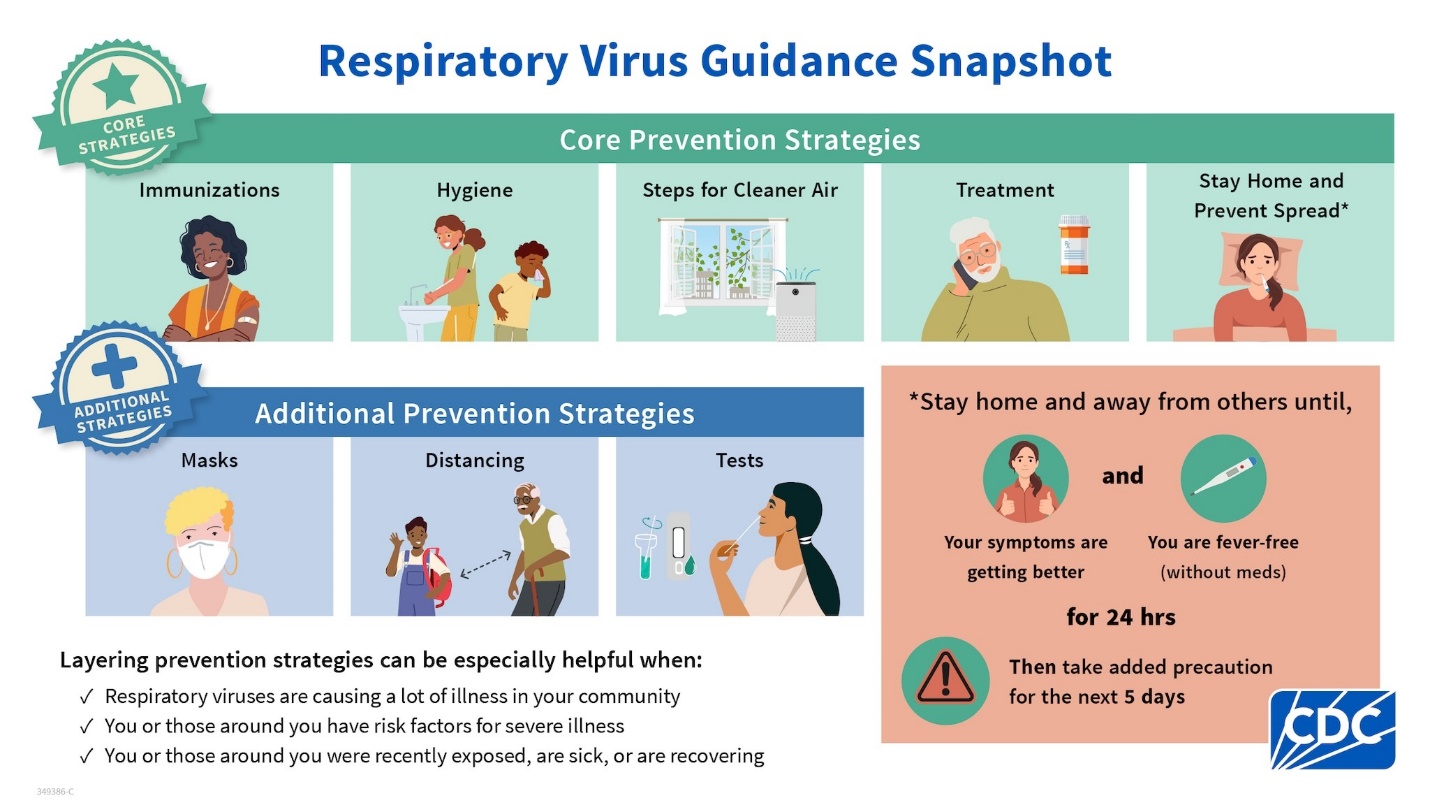
STUDENT ILLNESS POLICY
Columbia College strives to provide a safe and healthy living and learning environment. Any student (commuter or resident) that attends classes on campus who knows, or has a reasonable basis for believing, that they are infected with an illness (e.g., coronaviruses or influenza) or other public health threat has an obligation to report that information.
STRATEGIES FOR FOSTERING A POSITIVE ENVIRONMENT
As a part of our continued commitment to campus health and in accordance with national and state recommendations for colleges and universities in managing respiratory viruses (COVID-19, flu, RSV, etc.), Columbia College has adopted the CDC Respiratory Virus Guidance.
Students can be tested for COVID-19 and other illnesses at Columbia Community Family Practice (CFFP), across the street from campus at 4808 Colonial Drive, Columbia, SC 29203. Vaccines are available at the Eau Claire Walk-In Clinic (ECWC) location on Monticello Road. CCFP and ECWC offer a sliding scale payment option for students and for those without insurance.
Student Notification Responsibilities:
- All students should report illness using the Illness Report Form (https://forms.office.com/r/2Rp1E4Rngz).
- Should access to the online form not be available during business hours, all students should report illness to the Office of Residence Life & Housing at 803-786-3019. During non-business hours, please call the Columbia College Police Department (CCPD) at 803-786-3333, and CCPD will contact the Student Affairs Administrator On-Call, who will collaborate with the Director of Residence Life & Housing and Associate Dean of Students for Student Development to implement strategies of care.
- Students should inform their professors of their absence and develop a plan to fulfill their academic obligations.
- Student-Athletes: Must notify the athletic trainer, Dr. Richard Williams via email at rwwilliams@columbiasc.edu or by phone at 803-786-3089.
Students should follow the medical guidance pertaining to their diagnosis.
- Residential students who have a roommate and/or suitemate will remain in their room during the isolation period or have the option of contacting Residence Life and Housing to explore temporary options, if available.
- Commuter students should NOT attend class, remain at home and away from others.
You can go back to your normal activities when, for at least 24 hours, both are true:
- Your symptoms are getting better overall, and
- You have not had a fever (and are not using fever-reducing medication).
When you go back to your normal activities, take added precautions over the next 5 days, such as taking additional steps for cleaner air, hygiene, masks, physical distancing, and/or testing when you will be around other people indoors.
Information for roommates
Individuals who have been within six feet of an infected roommate for a cumulative total of 15 minutes or more over a 24-hour period are considered a close contact. Most people are contagious two days prior to becoming symptomatic or receiving a positive test. It is likely that an individual who is a close contact of a roommate has already been exposed to a respiratory virus before their roommate tests positive.
On-campus students living with a roommate who tests positive for a respiratory virus and who are at increased risk for severe illness should contact Residence Life and Housing to explore temporary options, if available.
The College reserves the right to inform the campus community if there is an illness/infectious disease outbreak on campus, without including the student’s personal identifying information.
Meals
- Students should use the Sodexo app to review menus.
- Call 803-786-3079 to request a To Go Plate
- Work with a friend or your RA to pick-up your plate.
- Dinner and Breakfast items will be provided during dinner mealtime.
- Students should mask up before entering the Dining Hall for 5 days upon return to normal activities.
Medical
- Students living on campus should contact CCPD at 803-786-3333 if they experience a medical emergency.
- If a student has been exposed to an individual diagnosed with an illness, they should monitor their health and get evaluated if they exhibit symptoms.
